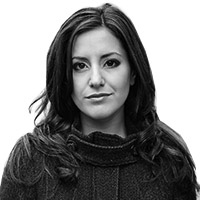YANGON — He has been called a “xenophobic fascist,” compared to Adolf Hitler, and accused of stoking Islamophobia across America, but U.S. Republican presidential candidate Donald J. Trump is finding admirers in an unlikely corner of the world, among Myanmar’s extremist Buddhist monks.
“As long as the Quran exists there will be terrorists, and like Trump we are trying to protect our country and our religion from the threat of Islam,” said U Parmaukkha, a monk and a senior member of a controversial ultra-nationalist organization known by its Burmese initials Ma Ba Tha.
U Parmaukkha was speaking in an interview at his Magwe Pariyatti Monastery, which is situated along a dusty road on the outskirts of Yangon (Rangoon). There are no glittering pagodas or Buddhist statues greeting visitors. Instead, the front entrance is adorned with a lurid banner depicting atrocities allegedly perpetrated against Buddhists by Muslims across Myanmar (Burma).
ADVERTISEMENT
Trump’s anti-Muslim rhetoric—including a proposal for a “total and complete shutdown of Muslims entering the United States”—is resonating among hardline Buddhist nationalists who have increasingly sought to portray Muslims as an existential threat to the country’s Buddhist majority. They, like Trump, have tapped into a deep vein of anger and bigotry under the guise of protecting their respective countries from the threat of Islamic extremists.
While Trump has defended himself against accusations of Islamophobia, he came out in support of surveillance of “certain mosques” and a database tracking Muslims living in America. The GOP frontrunner’s first TV campaign ad also spotlights his call for a ban on Muslims entering the United States, citing the threat of “radical Islamic terrorism.”
Such positions have endeared Trump to Burmese hardliners such as Win Ko Ko Latt, the 34-year-old chairman of the Myanmar National Network—a youth group with links to the Ma Ba Tha that regularly hosts anti-Muslim events.
“I like Donald Trump because he understands the danger posed by Muslims,” Latt said in an interview during a recent visit to the Magwe monastery. “It shows that our struggle is a global one and that Islam isn’t just a threat to Myanmar but to the entire world.”
Just as Muslims and Islam have played an outsized role in the 2016 race for the White House in the wake of last year’s terrorist attacks in Paris and San Bernardino, Islamophobia has cast a shadow over politics in Myanmar as the country transitions toward democracy after five decades of oppressive military rule.
Formally known in English as the Association for the Protection of Race and Religion, Ma Ba Tha and its predecessor, the “969” movement, have been accused of stirring up anti-Muslim sentiment. Prominent monks associated with the groups have been linked to a wave of violence against the country’s Muslim minority in 2012 that left hundreds dead and displaced more than a quarter-million others.
They include Ashin Wirathu, who has been dubbed, ironically, “the Burmese bin Laden” and spent several years in jail for inciting deadly anti-Muslim riots in 2003. Last year, Wirathu called the UN’s special envoy on human rights a “whore” and a “bitch” after she criticized the Ma Ba Tha-drafted legislation restricting interfaith marriage and religious conversions.
Ma Ba Tha is believed to be aligned with the military government, and its leaders have openly campaigned against Aung San Suu Kyi’s National League for Democracy (NLD), which swept Myanmar’s landmark November elections. The group’s influence is believed to have played a role in the NLD’s decision not to field a single Muslim among its 1,151 regional and national candidates.
While Trump is far from being a household name in Myanmar, his positions have drawn comparison to Wirathu. A popular satire column in The Myanmar Times last month launched a contest series—“Who said it: Trump or Wirathu?”—which asked readers to guess the author of inflammatory remarks. (First quote was “There are people that shouldn’t be in our country. They flow in like water.” That was Trump.)
Widespread discrimination against Muslims, who form an estimated four percent of Myanmar’s 52 million people, has been particularly hard on the country’s long-persecuted Rohingya ethnic minority. Deprived of citizenship and voting rights—and largely confined to squalid displacement camps in the aftermath of the 2012 violence—Rohingya Muslims face restrictions on freedom of movement, access to proper medical care and education.
Myanmar’s hardline nationalists, including the Ma Ba Tha, have framed the Rohingya issue as a security threat, suggesting that the Rohingya are not citizens of Myanmar but rather illegal immigrants from Bangladesh.
“Most of these people are illegal so it is important to stop the new government from granting them citizenship, which would be a great danger to our country,” said Myanmar National Network’s Latt.
There is little insight about Trump’s foreign policy priorities for Myanmar or his views on the plight of the Rohingya (the campaign did not respond to multiple requests for comment). Still, his comments about Muslims have raised alarm bells among some Rohingya in refugee camps —where news travels quickly through word of mouth and on social media.
Sitting outside of a thatched bamboo hut that now serves as his home at the Ohn Taw Gyi camp on the outskirts of Myanmar’s provincial capital Sittwe, 22-year-old Myo Tun said he has heard about Trump’s views through social media and is worried that a Trump presidency would translate to lessened international pressure on Myanmar’s government to address the plight of the Rohingya.
“Our situation is getting worse each day and it is hard to see change coming from political leaders in this country,” said Myo Tun, who had hoped to study political science at Sittwe University before a Buddhist mob torched his village in 2012. “[Trump] talks about Muslims the same way as some of our government officials. This is something that makes me nervous because the international community is our only hope.”
Reporting for this article was supported by a grant from the International Reporting Project.






